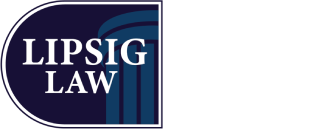New York City Slip & Falls due to Negligence
With cool fall weather just setting in, it’s only a matter of time before snow begins to cover our streets and skaters grace the ice in front of Rockefeller Center. And while New York City becomes even more beautiful during the winter, it also presents considerable dangers to pedestrians. Patches of ice and slushy snow are common causes of outdoor slip, trip, and fall accidents.
Fall accidents affect more lives than you would think. According to the National Safety Council, approximately 9 million Americans are treated in emergency rooms every year for injuries sustained in falls. Other studies have put the daily fall total at around 25,000. And while more than 50% occur in the home, at least 25% happen outside, close to your front door.
Falls are of particular concern to elderly New Yorkers; over 1/3 of all Americans over the age of 65 will fall every year. But the danger exists for the young, as well. After a serious slip and fall accident, many residents of NYC wonder how they could have been so stupid. In short, they blame their own foolish actions.
Slip, Trip & Fall Accidents: Negligent Property Owners
But few slip and fall accidents occur of their own accord. Most are caused, either directly or in part, by environmental factors, hazards on construction sites, in restaurants, and retail establishments. For personal injury lawyers, as well as accident victims, the crucial question is whether or not negligence was involved.
What Is Negligence?
Negligence occurs when someone acts, or fails to act, in a way that harms another. But not every example of this kind can be considered negligence. For example, take a police officer attempting to restrain a resisting suspect. A struggle ensues and the suspect happens to bump their shoulder. They get hurt, but it’s not negligence. Why? Because the police officer was simply doing their job. More importantly, in similar situations, other competent officers would have done the same thing. So we’ll have to refine our definition of negligence a bit.
The rational concept behind legal definitions of negligence is simple. As stated by Jay M. Feinman, Distinguished Professor of Law at Rutgers:
“people should exercise reasonable care when they act by taking account of the potential harm that they might foreseeably cause to other people.”
This is a common sense view with which most of us would agree. And it’s been enshrined in America’s Tort laws, which allow victims to recover compensation from people who have harmed them.
Defining Negligence In-Depth
A situation must fulfill four preconditions before counting as an example of negligence:
1. Duty Of Care – Someone owed you a duty.
For example, you walk into a bodega in Brooklyn. You want to buy a Coke and a loaf of bread. In exchange for your business, the bodega’s owner owes you a certain level of safety. Property owners should maintain reasonably safe premises for their visitors. You wouldn’t even step through the door if you knew that doing so would lead to an accident.
2. Breach Of Duty – You were exposed to an undue risk.
You’re walking through the bodega’s aisles, minding your own business, and slip on an unmopped spill. The spilled substance had been there for hours, and the owner knew it. Unfortunately, they failed to clean it up, knowingly maintaining unsafe conditions and putting customers in harm’s way. In Tort law, it’s only necessary that a property owner should have known about the hazard, not that they actually knew.
3. Factual causation – Your accident caused your injuries.
You were hurt. Let’s say you broke your ankle. You show up at the emergency room, receive treatment, and leave with a medical report. It remains to be proven that your broken ankle was caused by your fall in the bodega. Maybe you fell off your roof last week, or were kicked a little too hard by a friend. Factual causation is the process of proving that you broke your ankle in the bodega; it’s putting the pieces together.
4. Harm – What did you lose?
Money makes the world go around, and Tort law is no different. In order to receive compensation, you have to prove that you suffered specific damages because of your accident. These damages could come in the form of medical expenses, if you needed surgery on your ankle, or lost wages if you couldn’t work. In limited cases, compensation may even be secured for “non-economic” damages, like pain and suffering. In other words, you have to put a number on it.
This idea, that property owners can be held accountable for accidents that occur in their homes, residential real estate, and business, is sometimes referred to as premises liability. You can learn more here.
Contact A New York City Slip & Fall Lawyer
Were you injured in a slip, trip, and fall accident in New York City? If a property owner’s negligence caused your fall, you may be able to secure compensation for damages. This possibility includes the owners of apartment and office buildings, convenience and grocery stores, bodegas, health spas and gyms, and properties owned by the City of New York. In the case of falls on icy sidewalks, home and business owners are responsible for maintaining the safety of sidewalks that directly adjoin their property.
With over 80 years of combined experience, and over $800 million recovered for New York’s accident victims, the personal injury lawyers at Lipsig, Shapey, Moverman, Freund & Wisell, PLLC are committed to protecting the rights of everyday people just like you. Contact us directly for a free consultation today. Begin reviewing your case with an experienced attorney, and learn more about your legal options. It’s free to you, and our lawyers always offer their services on a contingency-fee basis: you owe us nothing unless we secure compensation in your case. Call 212-285-3300 or complete our online contact form here.


